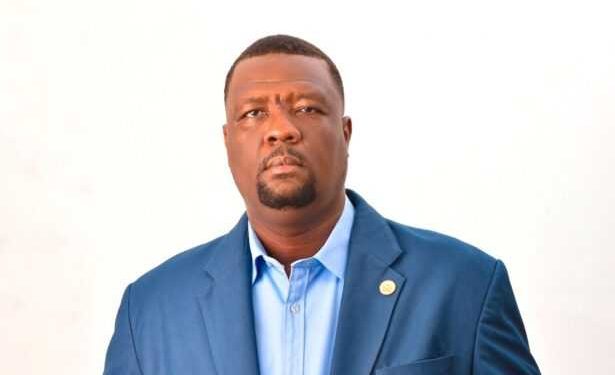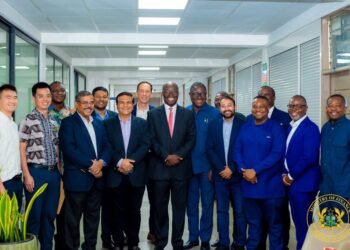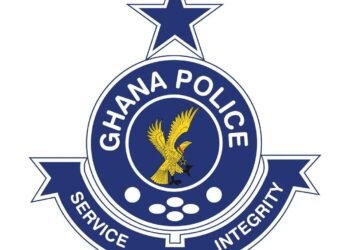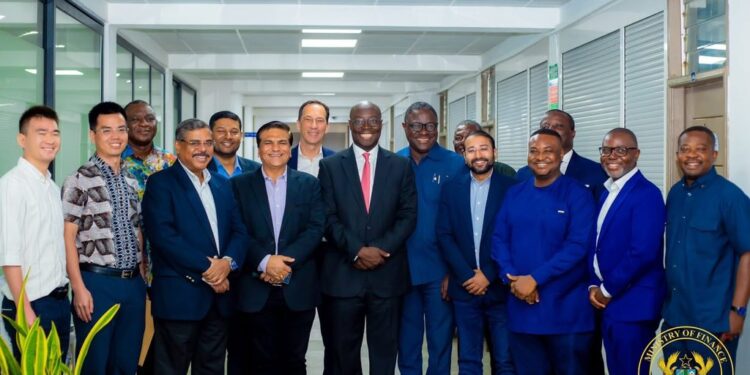The Chief Executive Officer (CEO)of the Driver and Vehicle Licensing Authority (DVLA), Julius Neequaye Kotey, has admitted that some staff members are complicit in illegal fee collection alongside the widely known ‘Goro Boys.’
He revealed that despite the agency’s efforts to curb corruption, certain employees participate in extorting money from clients by inflating charges.
“The overcharging is not done by only the Goro boys, some of my staff are part of it. I’m not going to shield them. They know me. Some of my staff are part of them”
Julius Neequaye Kotey, DVLA CEO
To address this, Kotey has instructed all DVLA stations to display banners clearly outlining official fees to prevent overcharging.
He emphasized that internal corruption would not be tolerated, citing a specific case in Takoradi where a staff member illegally charged a client GHS 14,000 for a customized plate, significantly above the official cost.
“We’ve called to caution him,” he added, stressing the immediate action that was taken upon learning about the fraudulent transaction.
He ensured that the overcharged amount was refunded and summoned the accused staff member to Accra to face a disciplinary committee.
“They’ll make the report available to me on Wednesday,” he added, assuring the public that his priority remained serving clients with integrity and efficiency.
He warned that any staff member caught extorting money from customers would face severe consequences.
Regularizing ‘Goro Boys’
Kotey acknowledged that previous administrations had repeatedly attempted to eliminate the activities of ‘Goro Boys’ without success.
Despite several crackdowns spanning multiple governments, unauthorized middlemen continued to operate at DVLA offices, undermining the agency’s revenue and regulatory framework.
“We fought these guys under Chairman Rawlings, we fought them under his excellency, John Agyekum Kufour, we fought them under his excellency Professor John Evans Atta Mills, we fought them under his excellency President John Dramani Mahama, and his excellency Nana Addo Dankwah Akuffo Addo. Are we still going to fight them now?”
Julius Neequaye Kotey, DVLA CEO
He criticized the introduction of DVLA’s Ultra Center, which charges clients extra fees for expedited services, arguing that it mirrored the unofficial work of ‘Goro Boys’ but under a more formalized structure.
“So you have your own office, you have your own structure, you come to DVLA, you apply, I come and assess it and I let you run – then you put an extra GHS 100 charge on it.
“From that extra GHS 100 charge, you give DVLA GHS 20, and then you take GHS 80. Is that not the same thing that the Goro boys are doing?”
Julius Neequaye Kotey, DVLA CEO
“So what about if we register them and regulate their activities?” Kotey asked, proposing a radical shift in approach to addressing the persistent issue.

Rather than continuing the streak of unsuccessful efforts to eradicate ‘Goro Boys,’ he suggested registering and regulating them under DVLA’s supervision.
“Bring them under an umbrella, control what they do, regulate what they do, make sure they don’t overcharge, give them fees and charges they are supposed to go by. If any of them goes outside the box, then you can deal with that person”
Julius Neequaye Kotey, DVLA CEO
He argued that this move would not only help prevent overcharging but allow for proper monitoring of the activities of ‘Goro Boys.’
Drawing comparisons to Tema Port, where former unauthorized middlemen were later recognized as agents, he maintained that proper regulation would bring order to the system while reducing criminal activities associated with joblessness.
Digital Vehicle Plates with Embedded Chips
Kotey also disclosed plans to overhaul the vehicle registration system by introducing plastic number plates embedded with microchips.
“Now we are bringing a system that will communicate with a number plate, and the aluminum plates cannot communicate with that system. So it is highly possible all number plates will be changed to a plastic one with a chip in it that will communicate with the road toll system”
Julius Neequaye Kotey, DVLA CEO
These new plates would be designed to communicate directly with road toll systems, eliminating the need for human intervention in fee collection.
Under the new system, any vehicle failing to register in the database would be flagged automatically and reported to the police.
Kotey believes this measure would significantly reduce the number of unregistered vehicles, particularly those smuggled into the country from Togo without proper customs duties.
“And we are there to make sure no one cheats the system. The Goro boys will not have access to put the chip in the new ones we are bringing. So if you bring a Togo car in now, you’ll not be able to register it.
“I’ll just advise anyone, get to the customs office and pay duty, and you are free to drive your car in Ghana”
Julius Neequaye Kotey, DVLA CEO
In addition to digital number plates, Kotey announced that DVLA staff would begin issuing DV plates directly at the ports.
This move aims to eliminate delays and inefficiencies caused by the current process, which requires vehicle importers to undergo multiple bureaucratic steps before securing their plates.
Kotey reaffirmed his commitment to transforming DVLA into a more efficient, transparent, and customer-friendly institution.
He vowed to eliminate long queues at service centers and improve turnaround times for processing licenses and vehicle registrations.
“Now our prestige office, you come there within thirty minutes, you’re done, you must leave”
Julius Neequaye Kotey, DVLA CEO
As the agency moves forward with its reform agenda, attention remains on the implementation of these measures and whether they would effectively curb corruption, streamline operations, and improve service delivery for Ghanaians.





















